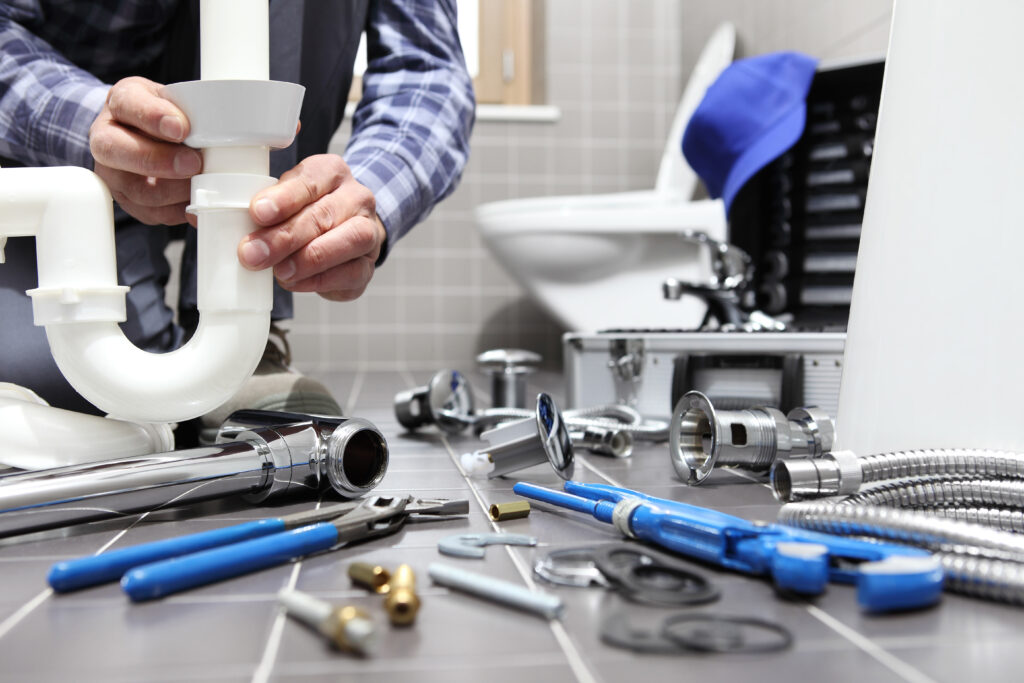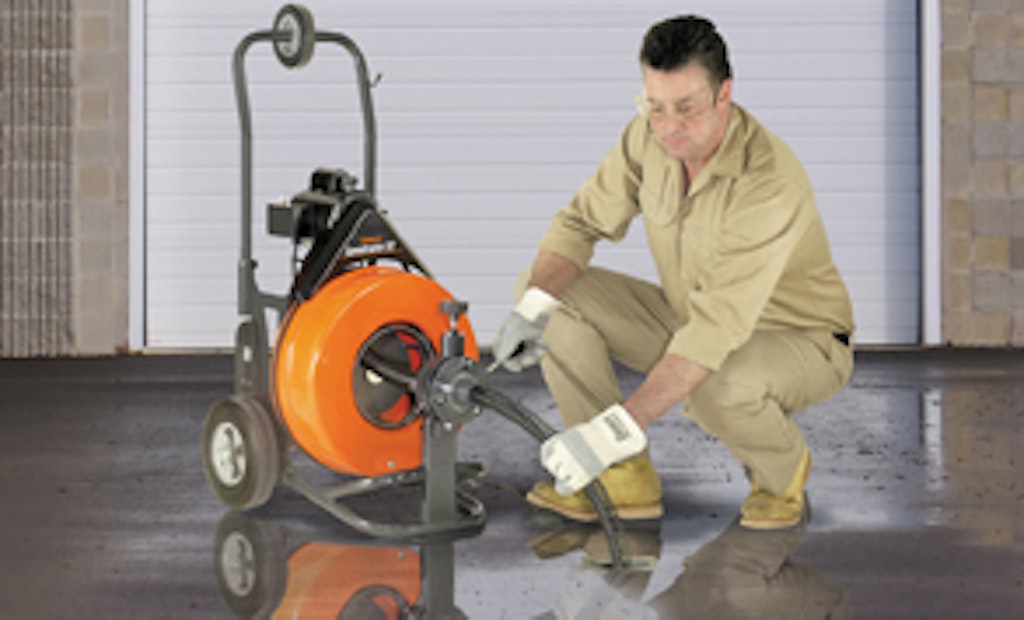Disclosure: This post contains affiliate links and I will be compensated if you make a purchase after clicking through my links. Learn More
Choosing the right plumbing tool can feel like a daunting task, especially when you’re facing a plumbing issue that needs immediate attention. Imagine this: You’re standing in front of a tangled mess of pipes, and all you want is a quick fix.
But without the right tool, the problem could escalate, costing you time, money, and peace of mind. This article is here to guide you through the maze of plumbing tools, ensuring you make the best choice for your specific job.
You’ll discover the secrets to effortlessly tackling any plumbing challenge, saving yourself from unnecessary frustration and expense. Stick with us, and unlock the confidence and skills to handle your plumbing tasks like a pro. Don’t let the wrong tool turn a simple fix into a major headache. Dive in, and empower yourself with the knowledge you need to make smart, efficient decisions.

Credit: www.bradshawplumbing.com
Types Of Plumbing Tools
Choosing the right plumbing tool is crucial for any plumbing task. Different tools serve different purposes and knowing what to use can save time and effort. Whether fixing a leaky faucet or installing new pipes, the right tool makes all the difference. Familiarizing yourself with the types of plumbing tools helps in making informed decisions.
Hand Tools
Hand tools are essential for basic plumbing repairs. They include wrenches, pliers, and pipe cutters. Wrenches come in various sizes and are used for gripping and turning pipes. Pliers are versatile and help in gripping small objects or bending wires. Pipe cutters ensure clean cuts on metal or plastic pipes. Hand tools are affordable and easy to use.
Power Tools
Power tools are ideal for heavy-duty plumbing tasks. They include drills, saws, and drain cleaners. Electric drills make holes in pipes or walls quickly. Saws cut through hard materials like metal or wood with ease. Drain cleaners unclog blocked pipes efficiently. Power tools save time and require less manual effort.
Specialty Tools
Specialty tools are designed for specific plumbing tasks. They include pipe wrenches, basin wrenches, and faucet keys. Pipe wrenches grip round objects, making them ideal for pipe work. Basin wrenches reach tight spaces under sinks. Faucet keys are used for removing and installing faucet parts. Specialty tools ensure precision and accuracy.
Essential Hand Tools
Choosing the right plumbing tools can make any job easier. Essential hand tools are a plumber’s best friend. They help with repairs and installations. Having the right tools saves time. It ensures a job well done. Understanding these tools is the first step.
Wrenches
Wrenches are vital in plumbing. They grip pipes and fittings. A pipe wrench is the most common. It has adjustable jaws. This helps to tighten or loosen pipes. Another type is the basin wrench. It’s used in tight spaces. Perfect for under sinks.
Plumbers’ Tape
Plumbers’ tape is also known as Teflon tape. It’s a simple tool with a big impact. The tape seals pipe threads. This prevents leaks. It’s wrapped around threads before connecting pipes. It’s water-resistant. An essential tool for any plumber.
Pipe Cutters
Pipe cutters make clean cuts in pipes. They are more precise than saws. There are two main types. One is the tube cutter. It’s used for copper pipes. The other is the plastic pipe cutter. It’s used for PVC pipes. Easy to use and efficient. Cuts are smooth and quick.
Power Tools For Efficiency
Choosing the right plumbing tool can make tasks easier and quicker. Power tools enhance efficiency and save time. They are essential for professional plumbers and DIY enthusiasts. In plumbing, specific power tools address different tasks. Let’s explore some key power tools that boost efficiency.
Drills
Drills are essential for creating holes in various materials. They help in installing pipe fixtures and fittings. Cordless drills offer mobility and ease. With adjustable speed, they work on different surfaces. Ensure the drill bits match the material for precise results.
Pipe Threaders
Pipe threaders cut threads on pipes, ensuring tight fittings. They are crucial for connecting pipes securely. Electric models offer quick and accurate threading. Choose the right size for your pipes. This prevents leaks and ensures a strong connection.
Drain Cleaning Machines
Drain cleaning machines clear blockages efficiently. They tackle tough clogs in pipes and drains. Electric models power through debris swiftly. They come with various attachments for different types of clogs. Regular use ensures smooth drainage in your plumbing system.

Credit: intownplumbingtx.com
Specialty Tools For Specific Tasks
Choosing the right plumbing tool for the job can be tricky. Specialty tools offer precise solutions for specific tasks. They save time and prevent potential damage. Knowing which tool to use is key to effective repairs. Let’s explore some essential specialty tools.
Pipe Locators
Pipe locators find hidden pipes underground or behind walls. They are crucial for avoiding damage during repairs. These tools use sensors to detect metal or plastic pipes. Accurate readings help pinpoint pipe locations. This ensures minimal disruption to your property.
Leak Detectors
Leak detectors help identify leaks in pipes or fittings. Early detection can prevent costly damage. These devices use sound, pressure, or infrared technology. They provide accurate leak locations. This allows for quick and effective repairs.
Inspection Cameras
Inspection cameras offer a clear view inside pipes. They are ideal for diagnosing blockages or damage. These cameras have flexible cables with LED lights. They transmit real-time images to a screen. This helps in assessing the condition of the pipes.
Choosing The Right Tool
Choosing the right plumbing tool ensures efficiency and safety. It prevents damage to your plumbing system. With a variety of tools available, selecting the right one is crucial. Each tool serves a specific purpose, tailored to different tasks. Understanding the job helps in making the right choice. This section will guide you through the selection process.
Assessing The Job
Identify the plumbing task you need to tackle. Determine the problem’s location and severity. A leaky faucet requires different tools than a clogged drain. Knowing the job’s specifics aids in proper tool selection. This reduces time and effort spent on the task.
Considering Tool Compatibility
Ensure the tool is compatible with the plumbing system. Different materials require different tools. Plastic pipes need tools suited for softer materials. Metal pipes need sturdy, durable tools. Compatibility prevents damage and ensures a successful repair.
Safety And Comfort
Consider safety when choosing a tool. Ensure the tool has safety features. Comfort is also key for effective use. Select tools with ergonomic designs. They reduce strain and fatigue during prolonged use. Safe and comfortable tools make plumbing tasks easier and safer.

Credit: www.cleaner.com
Maintenance And Care
Selecting the correct plumbing tool ensures efficient repairs and minimizes damage. Proper tools make tasks easier and save time. Routine checks on these tools enhance their lifespan and performance.
Maintaining and caring for your plumbing tools is essential to ensure their longevity and effectiveness. Imagine tackling a plumbing issue only to find that your tools are rusty or broken. Regular maintenance can prevent such frustrating scenarios. It’s about safeguarding your investment and ensuring that when you need them, your tools are ready to perform.
Cleaning Tools
After using your plumbing tools, take a few minutes to clean them. This simple act can prevent rust and other damage. Use a damp cloth to wipe off dirt and grime, then dry them thoroughly. For those hard-to-reach spots, a toothbrush can be surprisingly effective. Regular cleaning can also help you catch any signs of wear early. Do you remember the last time you cleaned your pipe wrench? If not, today might be a good day to start.
Proper Storage
Storing your tools properly is as important as cleaning them. Leaving them in a damp garage corner can lead to rust. Instead, consider using a toolbox or pegboard for better organization. Ensure each tool has its place. This not only keeps your workspace tidy but also makes tools easy to find when you need them. It’s like giving your tools a home where they won’t be forgotten or damaged.
Regular Inspections
Inspect your tools regularly for any signs of damage. A small crack in a plunger can lead to bigger issues when you least expect it. Make it a habit to check for loose screws or broken parts. Regular inspections can save you time and money in the long run. If you spot something amiss, address it immediately. Have you ever tried to fix a leak with a faulty wrench? Avoiding that hassle is as simple as a quick check-up.
Expert Tips And Recommendations
Selecting the perfect plumbing tool ensures efficient repair and maintenance. Consider the task’s complexity and tool compatibility. Opt for durable, user-friendly tools to enhance precision and ease.
Choosing the right plumbing tool for the job can make a world of difference in how efficiently and effectively you can tackle plumbing projects. Whether you’re a seasoned plumber or a DIY enthusiast, having the right tools and knowing how to use them is crucial. In this section, we’ll dive into some expert tips and recommendations to help you avoid common pitfalls, invest wisely in quality tools, and stay ahead with the latest in plumbing technology.
Common Mistakes To Avoid
A frequent mistake is using the wrong tool for a task. This can lead to damage and create more work. Always double-check that you have the specific tool that suits your job. Another common error is neglecting regular maintenance of your tools. Rusty or dull tools can complicate simple tasks. Make it a habit to clean and oil your tools after use. Some people overlook the importance of safety gear. Even for small jobs, ensure you have safety goggles and gloves on hand. It might save you from unnecessary injuries.
Investing In Quality Tools
Quality tools often have a higher upfront cost, but they save money in the long run. A durable wrench, for example, will outlast several cheap ones. Consider tools from reputable brands known for their reliability. Read reviews or ask fellow plumbers for recommendations to ensure you’re making a smart purchase. Think of your tools as an investment. Proper care and storage can prolong their life, ensuring they’re ready when you need them most.
Staying Updated With New Technology
The plumbing world isn’t static; new tools and technologies emerge regularly. Keeping updated can give you an edge in efficiency and precision. Attend trade shows or subscribe to industry magazines. These are excellent ways to learn about the latest innovations and how they can benefit your projects.
Don’t be afraid to try out new tools. Many modern tools are designed to make tasks easier and quicker. A digital pipe locator might just be the upgrade you need for precise work. In your experience, what has been the most valuable tool in your toolkit? Share your thoughts below and help others make informed decisions!
Final Words
Choosing the right plumbing tool makes the job easier. Each task needs specific tools. Know your tools well. A wrench, plunger, or pipe cutter can be crucial. Always have basic tools on hand. Safety is important. Wear gloves and goggles.
Practice makes perfect. Try using tools on small tasks first. This builds confidence. Buying quality tools saves money long term. They last longer and work better. Check tool reviews before purchasing. This helps find reliable brands. With the right tools, plumbing tasks become manageable.
You can fix leaks or install new pipes with ease. Stay prepared and tackle plumbing challenges confidently.


